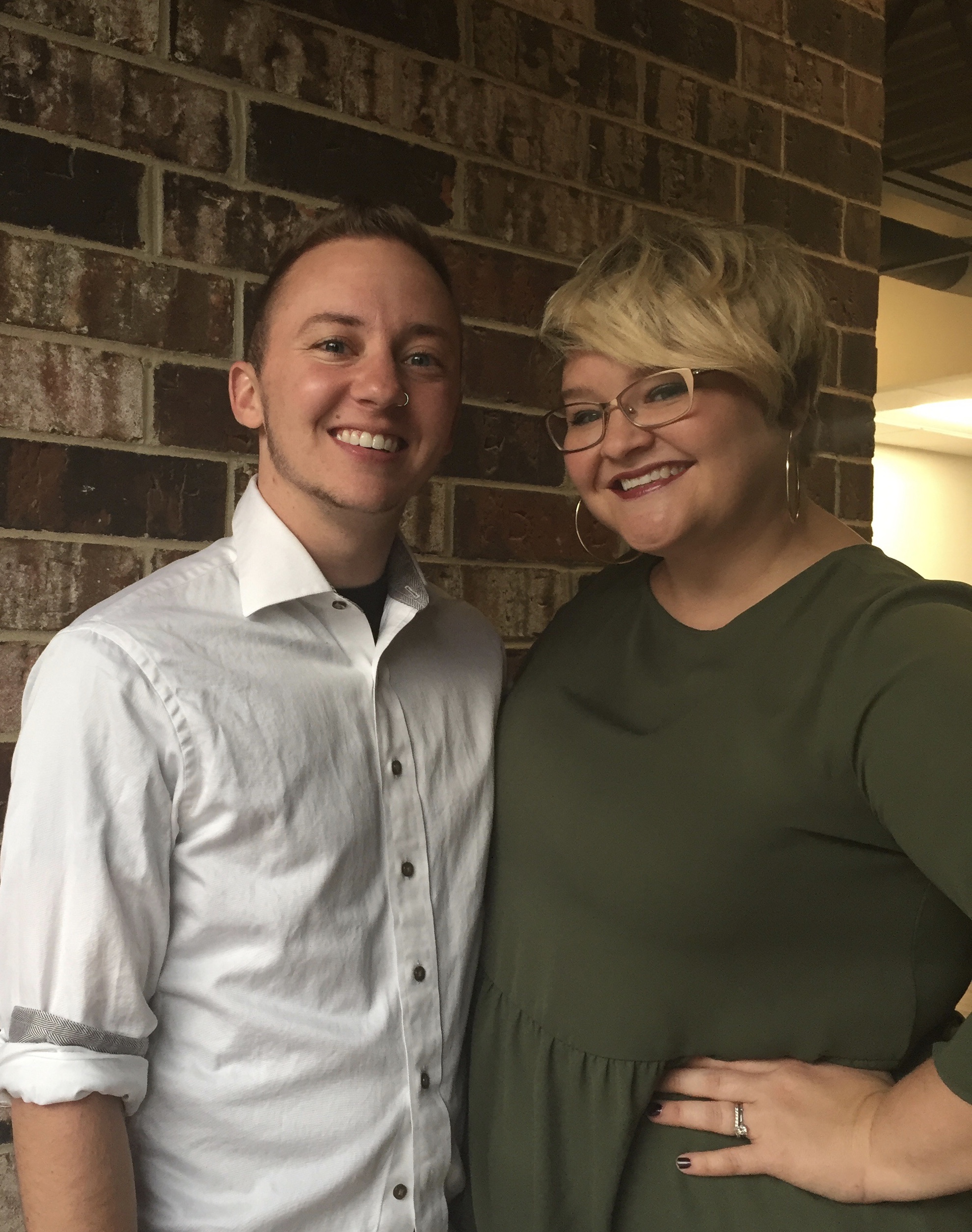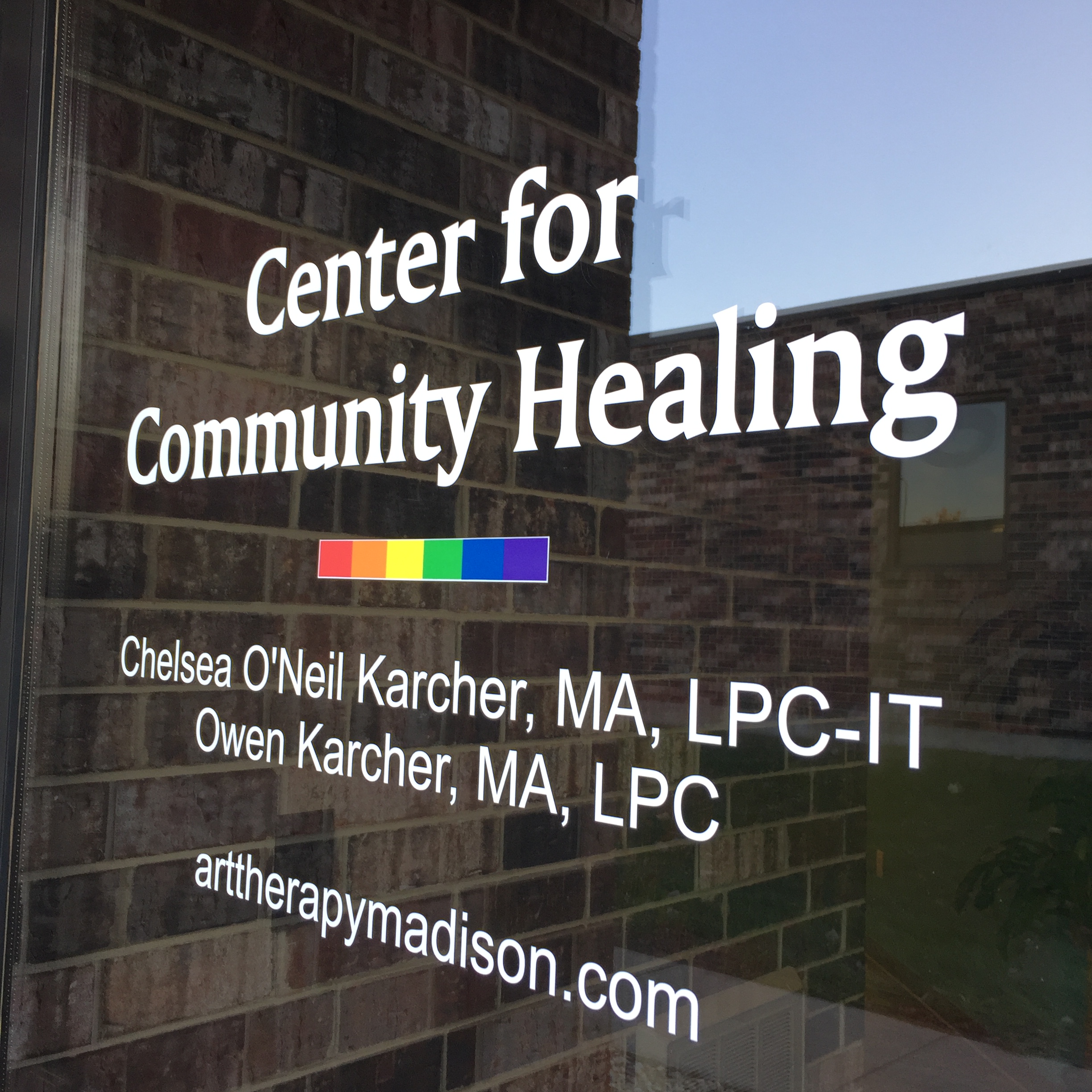
By Amanda Hart, student in Naropa University’s Transpersonal Contemplative Art–Based Counseling program
Chelsea Karcher, MA, LPC-IT with her partner Owen Karcher, MA, LPC run The Center for Community Healing in Madison, Wisconsin. Together, they have established a practice that provides a therapeutic environment informed by personal experiences, core values, and a deep understanding of what it means to work with marginalized clients in a compassionate, aware, and socially informed way. Both graduates from Naropa’s Transpersonal Clinical Mental Health Counseling and Art Therapy program, they work through a strong social justice lens, applying their understanding of oppression and societal injustice to their work with clients as well as their consulting work, where they provide necessary training to therapists on their role as ally and the importance of bringing awareness to their internal biases.
As Chelsea explains, in order to better society and community at large, this internal work is mandatory. When working with clients from any marginalized background, knowing our own implicit biases and how they are being brought into the relationship has to be worked into awareness.
The Center for Community Healing
“While studying at Naropa I read an article by Dan Hocoy called “Art therapy and Social Action: A Transpersonal Framework.” This paper was integral in shaping my identity as an art therapist and continues to inform all of my work.
Hocoy made the radical statement that no matter how much therapy one undergoes, how much internal development occurs, one can never truly be fully evolved or bring an end to psychological suffering until the social disparities of the world, and the intrapsychic wounds of trauma are healed. Conversely, no matter the amount of civic engagement and social activism one dedicates themselves to, there is no true possibility for social justice until the internal marginalization of self, and psyche are engaged and integrated.
In our work as therapists and advocates, we continuously interact with people of color, LGBTQ people, women, and other marginalized groups who have been harmed by previous clinicians and healthcare providers. We have also experienced oppression and various -isms, so we want to create a space that is affirming and transformative for all people who enter our doors, ourselves included.

As my partner and I crafted our joint practice, we centered the following values:
- A commitment to continue examining the world views and socially constructed ideals of the therapist
- Consistent reflection on how that sense of identity and self carries over into the therapeutic relationship
- An acknowledgment of the interconnectedness of the human experience
- A commitment to moving beyond the walls of the therapy room and out into the community in order to improve the state of the world
It is our belief that mental health professionals have an ethical responsibility to conduct a thorough examination of their own cultural identity, development, and unaddressed unconscious material in order to serve clients more thoroughly. Without this examination, a therapist may continue to operate without a conscious integration of suppressed aspects of self, relating to their cultural identity in a way that adversely affects the client and perpetuates harm. The harm to the client can manifest by inaccurate mirroring of their experiences, continuing to devalue their experiences of marginalization and oppression, or perpetuating pre-existing power dynamics in relation to societal privilege.
The art therapist as a social activist incorporates an awareness of the interconnectivity between individual and collective, between a person’s suffering and social imbalance, as well as an active commitment to personal and social transformation through advocacy for those aspects of individuals and society that are disenfranchised. Often the intent of therapists is to heal that which has already been wounded, the trauma or emotional damage of what has already occurred. Traditional modes of therapy are often failing to attend to the climate that continuously wounds and re-wounds, traumatizes, and causes damage continuously over time.
I believe there is a severe lack of training around social and cultural critical analysis. There also needs to be greater emphasis on assisting clients in coping with and adapting to unjust social systems.”
Follow Naropa Art Therapy on Instagram or join our Art Therapy Facebook Group.





